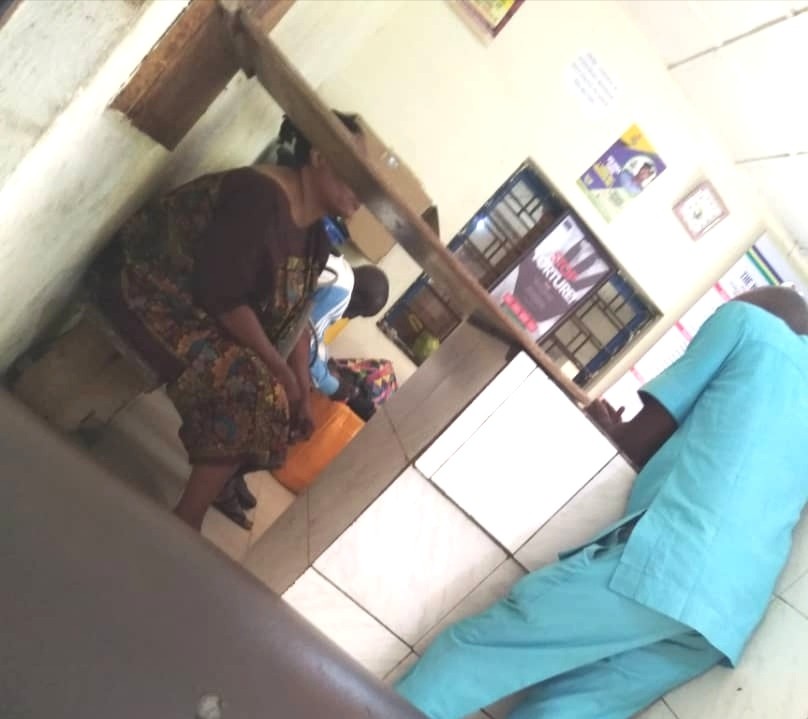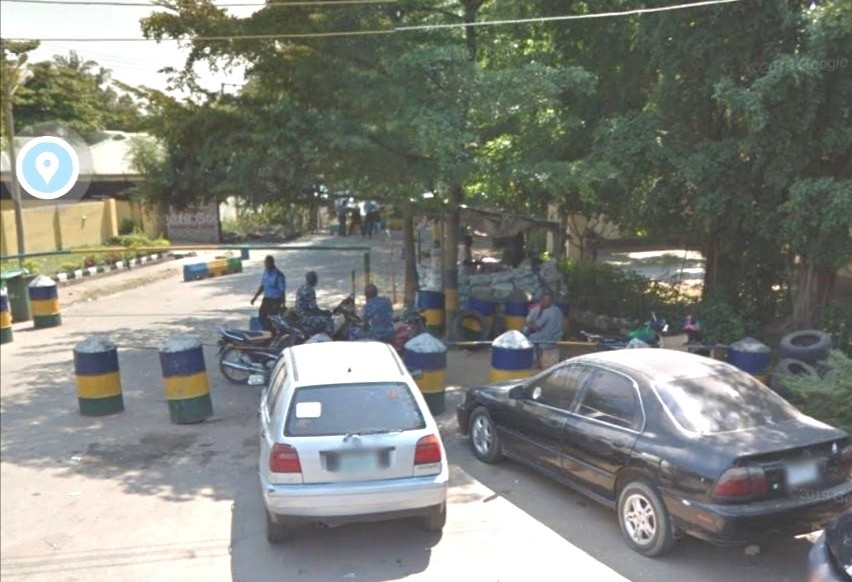45 Minutes At Abuja Police Station Shows Police May Be Changing
I expected that police formations across the country would be more protected than it had been after the mayhem unleashed on operatives of the force during the EndSARS protest. Since my assignment was to go and sit at any Abuja police station and observe how suspects and complainant are treated, I chose to visit the Gwarimpa Divisional Police Station, and I was prepared.
The entrance to the station was barricaded and visitors have to explain their mission before being allowed into the station-which is almost a hundred metres from the gate. As I approached the entrance, I was lucky to meet a lawyer going inside the station. The policemen recognized the lawyer.
Advertisement
“Oga how far? I say make I come back see IPO,” the lawyer told the officers in pidgin. “Ok, oga,” the officer replied, carefully scanning my laptop bag with his eyes before saying “Please off your phones,” as he pointed at a signpost which says ‘Please put all phones off. Phones are not permitted in the station’.
That was how I managed to get inside the station at about 2pm on Thursday November 5.
First I noticed no attempt to enforce wearing of facemasks or social distancing as preventive measure against covid-19 serious. The policemen were not wearing any face shield.
When I entered the station located at Frantz Fanon Crescent, Gwarimpa, Abuja, I was ushered to the complaint counter where two officer separated by a demarcation were on hand. I saw a female suspect behind the counter explaining something to the officer in an unusually loud voice and had to be told by a female officer to “stop shouting.”
Advertisement

There were three other suspects, all men, sitting quietly behind the counter. One was in handcuffs. The one in handcuffs was later taken away to the interrogation room and subsequently whisked off the station a few hours later.
A burglary gate showing a 4-room cell stood facing the counter, and a male inmate wearing only boxers hung on the gate shouting to be heard. Three other men could be seen within the cell.
One of the officers at the counter, Kan ayo Nte, ( the name tag on his uniform), was touched by my “complaint” and in empathy asked : “Why would you give a man such an amount of money, who is not related to you by blood nor marriage without any official agreement?”
Of course I had made up a story that a guy named Frank Peters had borrowed N320,000 from me and failed to return it since February 25.
Advertisement
After asking me more details about the transaction, he concluded that “Your case is a civil one and not in the jurisdiction of the Gwarimpa police because the location of an event was more important as the event itself. But I just want to help you.”
It was obvious my travails had touched him and he appeared truly willing to help. I had told him the money was an accrued saving from my just concluded National Youth Service Corps. He then asked if I got the guy’s contacts and I gave him. Since I only planned to spend 45 minutes at the station, I had already planned with Peters to answer any call from the police and say he would be coming to the station to explain himself.
I persuaded the officer to call Peters. Then he asked: “What is your name?” I responded. “So you are Igbo? You didn’t act like an Igbo lady o” Nte told me, getting more interested as he penned all necessary details in a rough paper.
He left the counter to call the “accused” (Peters) with his own phone. Peter told him he would be at the station in 30 minutes. He encouraged me to wait for 30 minutes as the “accused” had promised to show up at the station.
I sat down and began to watch what goes on at the station. I noticed People walking in and out of the counter to lodge complaint while the two officers took time to listen and write statements. Some come into the station asking to see the DPO.
A two-star army officer felt insulted she was asked to wait on the queue to see the DPO who was attending to someone in his office. But she was calmed.
Advertisement
Police officers at the station appeared more civil in the way they attended to civilians despite dramatic displays by some suspects and complainants. I took the liberty to move around the station a bit and noticed the interrogation room had more activities. Investigating Police Officers (IPOs) were seen moving in and out of the room with case files.
I noticed that once a complaint is brought to the counter, depending on the nature of crime, the case files moved from the counter to the table of an IPO in the interrogation room who then intensifies inquiries on the case.
I quickly came back to the counter in time to see a family member of a suspect bought food for him, but the police insisted the person display the content and also eat from it. I think this was to prevent poisoning of suspects in their custody.
I also observed not many complaints were made, perhaps because it was still early in the day. Most of those coming and going were policemen or their visitors. I witnessed only two complainants at the counter, with me the third person. They treated others the way Nte had treated me, with civility, concern and empathy.
As Peters’ 30 minutes deadline approached, I still had not seen a case of insensitivity, barbarism and unprofessionalism that had become synonymous with police operations here.
The officer was getting worried and dialed Peters number again. The “accused” said he was still on his way. But I was apprehensive the officer may soon see through my game when he realizes Peter would not show up, so I told him I wanted to go.
But out of concern for me, he urged me to be patient so I don’t miss out on him. At this point, a female senior officer appeared to be watching me, because I was also taking photos with my phone. It was time to go.
After staying for about 45 minutes, I told the officer I was leaving. I promised to be back after getting some food. I left the station with the impression that the policemen at the Gwarimpa station were doing their jobs with some decent level of professionalism. I didn’t pay a kobo and none of the complainants I saw were asked to bring money.
The officers at the counter were patient and empathetic in the way they attended to visitors and complainants. But perhaps, the day was still too young to see the dark sides. As I think of what story to write on the station, I promised myself I would visit another police station in the FCT and spend more time to test my assumption that police operations are changing.



